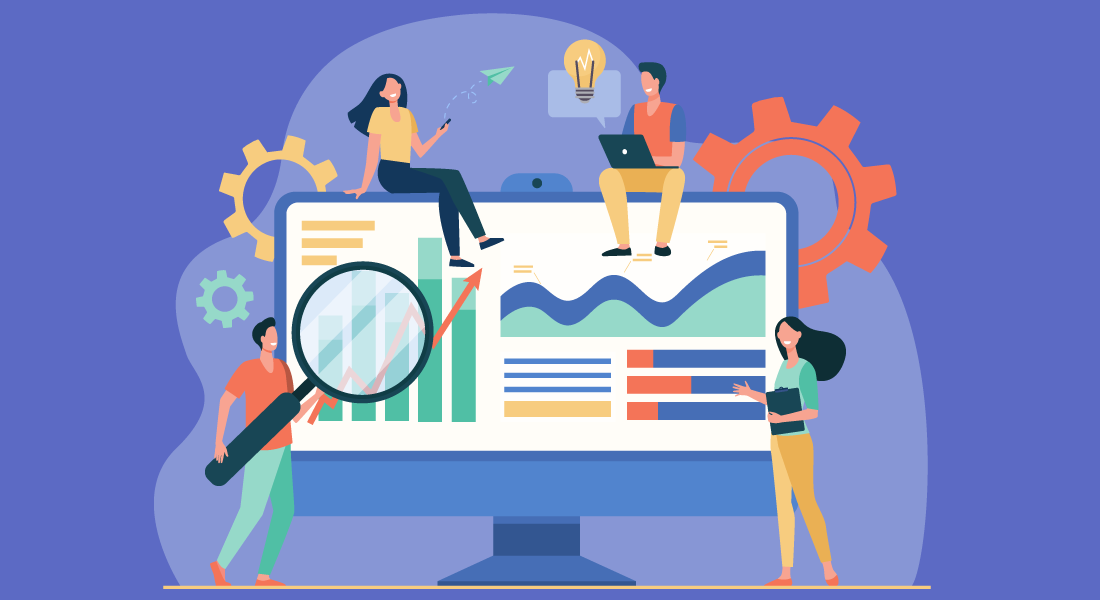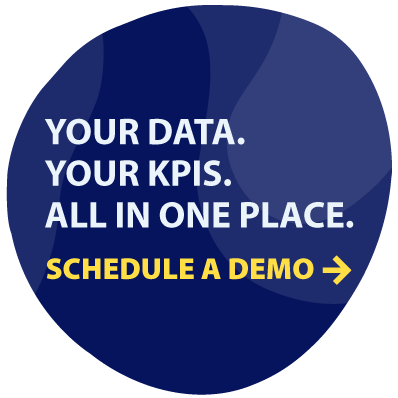5 Benefits of Business Intelligence Tools

In 1967’s The Graduate, McGuire pulls Benjamin aside and offers one word of advice, “Plastics.” Even considering the symbolic meaning of the advice, were the same film made in 2021, the one word would, without a doubt, be “data.” More than most people know, data, and big data, has a huge impact on everything we do from our daily lives to our businesses.
Often, the ability to leverage the data collected, to analyze it effectively and turn it into business strategies and successes, is the difference between winning and losing in a competitive marketplace. Therefore, the applications we use to gather, report, and analyze that data are the essential tools of the workplace.
Quick Links
- What is business intelligence & why is it important?
- What are business intelligence tools?
- 5 benefits of using business intelligence tools
What is business intelligence and why is it important?
In short, business intelligence is the collection, reporting, presentation, and analysis of data from various sources (software, applications, services) that informs a business. The end goal is strategic and data-driven decisions.
How a business makes decisions is fundamental to its success. Data driven decision making allows an organization to view data as it comes in, compare it to historical and market data as well as other data sources, and make decisions that can:
- Identify friction points for customers, clients, or team members
- Prepare for and predict historical market fluctuations
- Assess market competition
- Track employee performance
- Monitor SLA benchmarks
- Improve processes and operations
- Identify potential revenue streams or opportunities
What are business intelligence tools?
If business intelligence is the data collected, reported, presented, or analyzed, business intelligence tools are the method by which those actions happen. This includes the applications, software, and services that provide and present the aggregated data in a structured and useful way.
There are a variety of ways these tools present the data including:
- Dashboards
- Gauges
- Visualizations (like maps)
- Reporting
- Data Mining
- OLAP (online analytical processing)
- ETL (extract-transfer-load)
Of these tools, dashboards and visualizations are the most popular and most easily used. As we are visual creatures, these tools are most popular as they provide the data quickly (literally at a glance) and allow users to leverage other visual tools (like design and layout) to facilitate fast identification of needed data.
In fact, these tools are so important that Business Intelligence Analyst is a career with considerable growth expected in the next few years. Part of the reason for that growth is that many BI tools require statistical and analytical skills as well as programming, coding, and advanced software skills. As a result, some business intelligence tools can be complex and difficult to use without specialized knowledge.
In contrast, BrightGauge’s business intelligence solution allow end users to work “out-of-the-box” with pre-built gauges and automated reporting features that make your business intelligence efforts...well..effortless. In fact, BrightGauge's tools require no coding, no SQL knowledge, and can be used by anyone on your team. That kind of versatility means your team is ready to make insightful data-driven decisions, the kind that strategically grow your business, right away.
5 benefits of using business intelligence tools
By this point, hopefully it’s clear that there are benefits to using business intelligence tools to help drive tactical and strategic business decisions. But, let’s take a closer look at what those benefits are.
1.Data-driven decisions
Having real data on customer, client, or even employee responses to initiatives lets your organization gauge their success, respond in an agile way, and determine whether similar initiatives will help meet business goals. For example, if data suggests that, historically, sales of a particular item increase during a specific month and then wane in another, you can strategically respond to those fluctuations with offers and pricing adjustments to increase sales or revenue.
2. Improved customer experiences
By tracking KPIs related to customer satisfaction or success, or for an MSP tracking response time of technicians, your organization can improve customer experiences. This kind of data is also what we see on major e-commerce sites that recommend products and services similar to what we’ve already purchased or been perusing. In that way, the benefits of business intelligence tools can benefit you whether your organization sells a product or a service.
3. Improved employee experiences
There’s no big secret to employee satisfaction. Employees want to feel seen, heard, and connected. A great way to do that is to use BrightGauge’s goals tool and share dashboards with employees to allow them to track progress and successes. You can even send automated reports to your team to keep them engaged and interested. There’s a direct correlation between employee engagement and employee satisfaction and business intelligence tools can help you strengthen that connection!
4. Competitive advantage
As noted briefly above, one of the best advantages of business intelligence tools is the access to historical and competitor data. Analyzing both of these allows you to prepare for market forecasts, recognize service or product gaps, and present solutions to the market when needed. Similarly, in the case of individual customers or clients, use your business experience to proactively recognize patterns or trends and offer services to your clients before they even know they need it.
5. Improved efficiency on multiple levels
Gone are the days of account managers jumping from program to program to gather data to report to a client, a superior, or even their team. Business intelligence tools like BrightGauge’s offer robust reporting capabilities, often with automation, and are a time saving measure for any team member who needs to report. Further, the ability to share dashboards with teams or individuals, means everyone can stay in alignment on goals and objectives. This kind of transparency on teams can drive productivity as all team members can gauge progress and share in the wins.
If your team isn’t currently using a business intelligence tool to reap all these amazing advantages, what are you waiting for? Using business intelligence doesn't have to be intimidating. BrightGauge was specifically designed so anybody could use it. Once you get your BrightGauge KPIs and dashboards set up, you'll be on your way to deeper data insights that could truly have a positive impact on your business.
Get in touch with the BrightGauge team to talk about how our solution can benefit you.
Free MSA Template
Whether you’re planning your first managed services agreement, or you’re ready to overhaul your existing version, we've got you covered!


